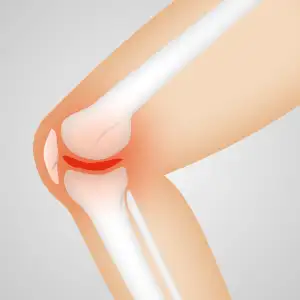Weight Gain and Vasectomy: Exploring the Potential Link for Better Health

Weight gain is a common concern for many individuals, and it can have significant implications for overall health and well-being. While there are numerous factors that contribute to weight gain, recent studies have suggested a potential link between vasectomy and weight gain in men. This intriguing connection has sparked interest among researchers and health professionals alike, prompting further investigation into the possible mechanisms behind this phenomenon. In this article, we will delve into the world of vasectomy and weight gain, exploring scientific studies and findings to shed light on this intriguing topic. By understanding the potential link between vasectomy and weight gain, we can better equip ourselves with knowledge to make informed decisions about our health and well-being.
Understanding Vasectomy
Vasectomy is a surgical procedure that involves cutting or blocking the vas deferens, the tubes that carry sperm from the testicles to the urethra. It is a highly effective form of permanent contraception for men who no longer wish to father children.
During a vasectomy, a small incision is made in the scrotum, and the vas deferens is either cut and sealed or blocked using clips or sutures. This prevents sperm from mixing with semen during ejaculation, thus rendering a man sterile.
Vasectomy does not affect sexual function or libido, as it only interrupts the flow of sperm. The procedure is typically performed under local anesthesia and can be done in an outpatient setting.
It's important to note that vasectomy does not provide immediate contraception. It takes time for any remaining sperm to be cleared from the reproductive system. Therefore, alternative forms of birth control should be used until a follow-up test confirms that no sperm are present in the ejaculate.
Overall, vasectomy is a safe and reliable method of contraception for couples who have completed their desired family size.
Exploring Weight Gain
Weight gain is a common concern for many individuals, and understanding the factors that contribute to it is crucial. Several factors can contribute to weight gain, including genetics, diet, exercise habits, and hormonal changes. It is important to note that weight gain is not solely caused by one factor but rather a combination of various elements.
When exploring weight gain, it is essential to consider the role of lifestyle choices such as diet and physical activity. Consuming a high-calorie diet or leading a sedentary lifestyle can lead to an imbalance between calorie intake and expenditure, resulting in weight gain over time.
Furthermore, certain medical conditions or medications can also contribute to weight gain. Hormonal imbalances, such as hypothyroidism or polycystic ovary syndrome (PCOS), can affect metabolism and lead to weight gain. Medications like antidepressants or corticosteroids may also have side effects that include weight gain.
In addition to these factors, recent studies have suggested a potential link between vasectomy and weight gain. While the exact mechanism behind this association remains unclear, some researchers speculate that hormonal changes following vasectomy could play a role in altering metabolism and potentially leading to weight gain.
It is important to emphasize that further research is needed to establish a definitive link between vasectomy and weight gain. The existing studies have shown mixed results, with some indicating an association while others finding no significant correlation.
In conclusion, exploring weight gain involves considering various factors such as genetics, diet, exercise habits, hormonal changes, and medical conditions. While there are suggestions of a potential link between vasectomy and weight gain based on limited scientific evidence, more research is necessary before drawing any definitive conclusions.
The Link between Vasectomy and Weight Gain
The link between vasectomy and weight gain has been a topic of interest among researchers and health professionals. While there is no direct causal relationship, some studies have suggested a potential association. A study published in the Journal of Urology found that men who underwent vasectomy experienced a slight increase in body mass index (BMI) compared to those who did not. However, the difference in weight gain was minimal and not clinically significant. Another study published in the American Journal of Epidemiology also reported a small increase in weight gain after vasectomy, but again, the effect was not substantial. It is important to note that these studies only show an association and do not prove causation. Further research is needed to fully understand the potential link between vasectomy and weight gain.
Scientific Studies and Findings
Scientific studies have been conducted to investigate the potential link between vasectomy and weight gain. One study published in the Journal of Urology examined data from over 10,000 men and found no significant association between vasectomy and long-term weight gain. Another study published in the American Journal of Epidemiology analyzed data from more than 20,000 men and also concluded that there is no substantial evidence linking vasectomy to weight gain. These findings suggest that vasectomy does not directly cause weight gain in men. However, it is important to note that individual experiences may vary, and further research is needed to fully understand the relationship between vasectomy and weight changes.
Hormonal Changes and Metabolism
Hormonal changes and metabolism play a crucial role in understanding the potential link between vasectomy and weight gain. Several studies have shown that vasectomy can lead to alterations in hormone levels, specifically testosterone. Testosterone is known to influence metabolism and body composition.
Research suggests that after vasectomy, there may be a decrease in testosterone levels. This decline in testosterone can potentially affect metabolic rate, leading to a slower calorie burn and increased fat storage. Furthermore, lower testosterone levels have been associated with decreased muscle mass and increased body fat percentage.
However, it is important to note that the impact of vasectomy on hormone levels varies among individuals. Some men may experience significant hormonal changes, while others may not notice any difference at all. Additionally, the effects of hormonal changes on weight gain are influenced by various factors such as age, genetics, and overall health.
While hormonal changes can contribute to weight gain after vasectomy, it is essential to consider other lifestyle factors as well. A sedentary lifestyle, poor dietary choices, and lack of exercise can also contribute to weight gain post-vasectomy. Therefore, it is crucial for men who undergo vasectomy to maintain a healthy lifestyle by engaging in regular physical activity and adopting a balanced diet.
It is worth mentioning that weight gain after vasectomy is not inevitable or guaranteed for every individual. Many men do not experience any significant changes in their weight following the procedure. Moreover, studies have shown that any potential increase in weight tends to be modest and can often be managed through healthy lifestyle choices.
In conclusion, hormonal changes resulting from vasectomy can potentially impact metabolism and contribute to weight gain. However, the extent of this effect varies among individuals. Adopting a healthy lifestyle with regular exercise and a balanced diet remains crucial for managing weight after undergoing vasectomy. It is always advisable for individuals considering or planning to undergo vasectomy to consult with their healthcare provider for personalized advice regarding potential risks and strategies for weight management.
Lifestyle Factors and Weight Gain
Lifestyle factors play a significant role in weight gain after vasectomy. One major factor is the decrease in physical activity. Many men tend to reduce their exercise routines or become less active after the procedure, leading to a decline in calorie expenditure. Additionally, changes in dietary habits can contribute to weight gain. Some men may indulge in comfort foods or unhealthy snacks as a way to cope with post-vasectomy discomfort or stress. Poor sleep patterns and increased stress levels can also impact weight gain by disrupting hormonal balance and increasing cravings for high-calorie foods. It is important for men to be mindful of these lifestyle factors and make conscious efforts to maintain a healthy diet, engage in regular exercise, prioritize adequate sleep, and manage stress levels to prevent weight gain after vasectomy.
Debunking Common Myths
There are several myths surrounding the link between vasectomy and weight gain that need to be debunked. One common myth is that vasectomy directly causes weight gain. However, scientific evidence does not support this claim. Vasectomy is a surgical procedure that only affects the reproductive system and does not have a direct impact on metabolism or weight.
Another myth suggests that hormonal changes after vasectomy lead to weight gain. While it is true that there may be slight hormonal fluctuations following the procedure, these changes are minimal and unlikely to cause significant weight gain. Furthermore, studies have shown no consistent evidence of hormonal imbalances leading to increased body weight post-vasectomy.
It is also important to dispel the misconception that vasectomy leads to decreased physical activity or changes in eating habits, resulting in weight gain. Research has shown no significant difference in exercise levels or dietary patterns between men who have undergone vasectomy and those who have not.
In conclusion, it is essential to separate fact from fiction when discussing the potential link between vasectomy and weight gain. The available scientific evidence indicates that vasectomy itself does not directly cause weight gain. Other factors such as lifestyle choices, genetics, and aging play more significant roles in determining body weight.
Managing Weight after Vasectomy
After undergoing a vasectomy, it is important to maintain a healthy weight to promote overall well-being. Here are some tips for managing weight post-vasectomy:
1. Balanced Diet: Focus on consuming a balanced diet rich in fruits, vegetables, lean proteins, and whole grains. Avoid excessive intake of processed foods, sugary snacks, and high-fat meals.
2. Portion Control: Be mindful of portion sizes to prevent overeating. Use smaller plates and bowls to help control the amount of food you consume.
3. Regular Exercise: Engage in regular physical activity such as brisk walking, jogging, or cycling. Aim for at least 150 minutes of moderate-intensity exercise per week.
4. Strength Training: Incorporate strength training exercises into your routine to build muscle mass and boost metabolism. This can include weightlifting or bodyweight exercises like push-ups and squats.
5. Stay Hydrated: Drink plenty of water throughout the day to stay hydrated and avoid mistaking thirst for hunger.
6. Limit Alcohol Consumption: Alcohol can contribute to weight gain due to its high calorie content. Limit your alcohol intake and opt for healthier alternatives like herbal tea or infused water.
7. Get Adequate Sleep: Lack of sleep can disrupt hormone levels related to appetite regulation, leading to increased cravings and weight gain. Aim for 7-9 hours of quality sleep each night.
8. Manage Stress Levels: Chronic stress can contribute to weight gain by increasing cortisol levels in the body. Practice stress management techniques such as meditation, yoga, or engaging in hobbies you enjoy.
Remember that maintaining a healthy weight is not only beneficial for physical health but also for overall well-being and self-confidence. By adopting these lifestyle habits post-vasectomy, you can effectively manage your weight and improve your overall health outcomes.
In conclusion, while there have been some studies suggesting a potential link between vasectomy and weight gain, the evidence is not conclusive. It is important to note that weight gain can be influenced by various factors such as hormonal changes, metabolism, and lifestyle choices. Therefore, it would be inaccurate to solely attribute weight gain to vasectomy.
It is crucial to consult with healthcare professionals for accurate information and personalized advice regarding weight management after vasectomy. Maintaining a healthy lifestyle through regular exercise and a balanced diet remains essential for overall well-being.
Ultimately, the decision to undergo a vasectomy should be based on personal considerations and discussions with medical experts. Weight gain should not be the sole determining factor in this decision-making process.
Published: 26. 02. 2024
Category: Health



